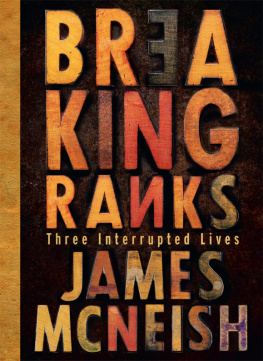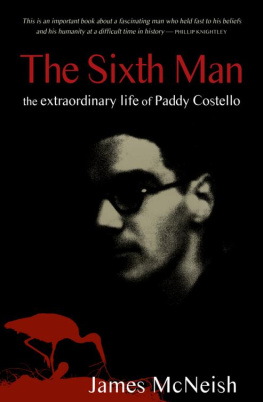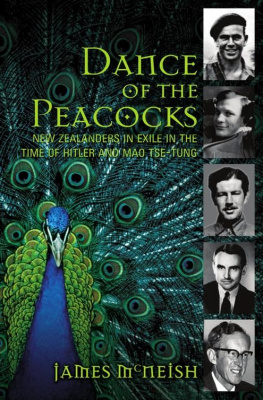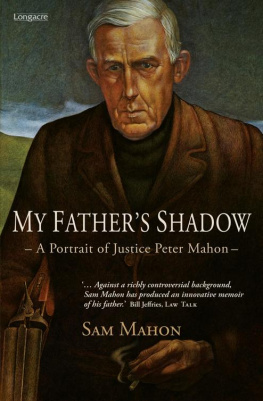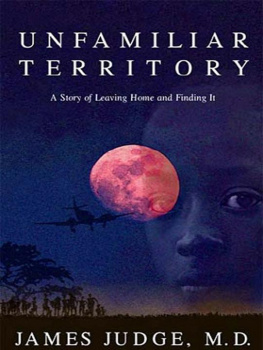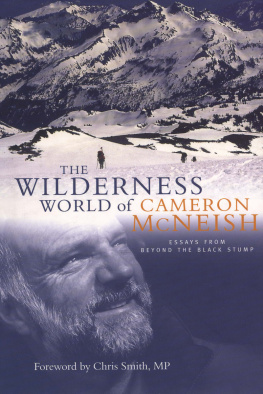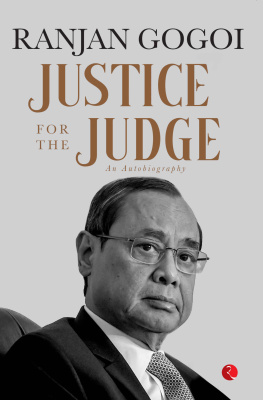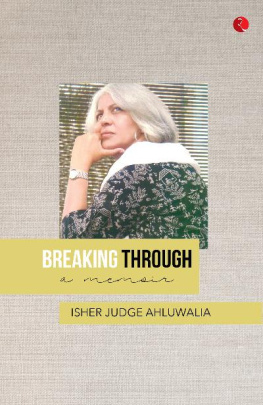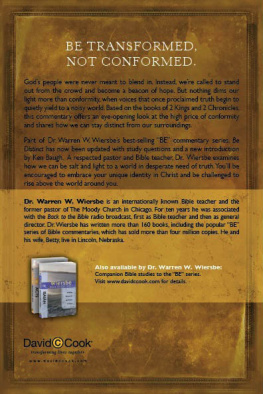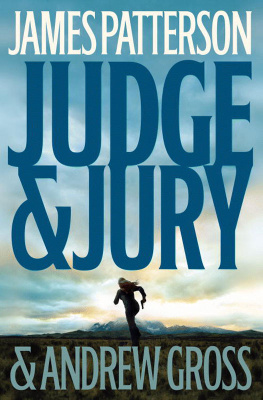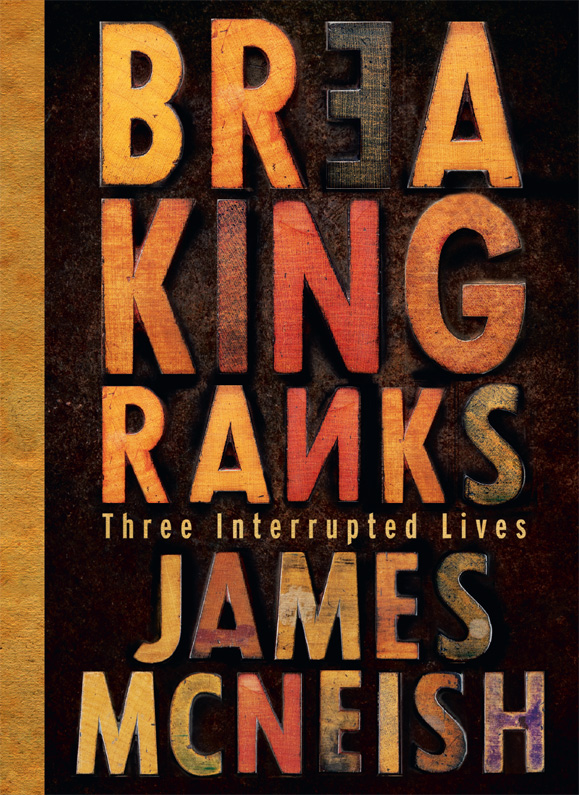CONTENTS
Guide
Wer spricht von Siegen? berstehen ist alles.
(Who speaks of victories? To endure is all.)
Rainer Maria Rilke, Requiem
This book is about three men who defied authority, and paid for it. A doctor, a soldier and a judge. Each was at the top of his profession. The title and subtitle of this book suggest a continuity, and, indeed, as I researched and wrote the stories, certain events and incidents I didnt know about emerged, suggesting a creatively neater approach built around a unified or common theme. But although each life is the stuff of fiction and the three share a common fate, dying prematurely when they had so much to give, more separates their stories than unites them. I have therefore resisted the novelists approach and the urge to fictionalise their stories, preferring to let each life stand alone as a story in its own right.
Having said that, I have been conscious when writing this book of a remark some forty years ago by the art critic and teacher, Eric McCormick. He said, Have you ever noticed the anarchic streak in this society? I hadnt. I had never thought about it. He didnt elaborate. Nor do I recall what triggered McCormicks remark. It might have been something quite simple, like the well-known episode when Kiwi troops in Libya failed to salute Field Marshal Montgomery, who then complained to Freyberg, who said, Im sure if you give em a wave, sir, theyll wave back. Or the occasion when Joe Heenan, Secretary for Internal Affairs, left his cheese-cutter on a hook at Buckingham Palace after departing from a royal row.
Over the years I have come to realise that there is more than a grain of truth in McCormicks remark. But this is the first time in my experience that an element of anarchy the heretical streak in our makeup has invaded the page unasked, as a kind of back story or mutinous subtext. In this sense the three essays, although quite separate, are not entirely random. All three men defy convention in a way that goes beyond mere dissent. A streak of subversion lingers.
Three lives, then; three provocateurs, innovators and visionaries, who died before their time. Two destroy themselves, and the third betrayal, it is said, being more dependable than friendship dies in furious sorrow. Not all three are born New Zealanders. Yet the doctor, who is English and who might be called in the language of fifty years ago a new-New Zealander, is arguably more than that, having transcended definition by being honoured on his deathbed by local tangata whenua and beyond.
Finally, I note that I have changed names in two or three instances at the subjects request, to protect privacy.

Sometimes after a good dinner and some wine my wife and I will sit around the table afterwards and talk about absent friends. Who is it we miss most? Helen will say. Invariably, almost as inevitable as the next sunrise, one name will come up, that of John Saxby: the only person she claims to have stayed in our house for any length of time who was unobtrusive to the point of near-invisibility. John spent three weeks with us in Wellington in the early nineties. He had designed an outbuilding, a Japanese tea-house, for me to write in and insisted on coming down to help me build it. What I remember about the visit is his gaiety; he was an uncomplicated and benign guest.
He turns up, or is reputed to turn up, in a novel by Brigid Brophy, The King of a Rainy Country, as the young man who is hanging about in the kitchen forever eating cornflakes. I said to John, What do you have for breakfast?
Cornflakes usually, he said.
I saw him in action in a professional capacity only once. At the rural institution on the edge of the King Country where he worked in the Waikato, he was holding a discussion session with a group of young patients. I sat in and listened. It was the first time we had met, following an introduction by telephone, and this was a different person altogether from the one who came to stay in 1991. Here was no benign house guest but a masquerading Pierrot, grotesque and impish as one of those gnomes you see as gargoyles, water-spouting from the walls of gothic churches in Italy. John was protean. I knew nothing of his earlier self, or selves: the actor in him, the poet, the translator, the oarsman, the mountaineer, or the innovator and alchemist in the field of mental disorders. Or any of his other selves in a past life. Only a few shards from that brilliant personality were beamed in my direction. At Tokanui Psychiatric Hospital, he was engaged as a psychiatrist, working under Henry Bennett. After Dr Bennett retired as medical superintendent of the hospital in 1984, John succeeded him. And then, nine years later, John died.
Ours was not an intense friendship, although it was intimate and real. We met only intermittently, with long gaps in between. I was often away, sometimes a year at a time. We met perhaps ten or fifteen times in twenty years. Yet such was his gift for friendship that I feel, looking back, that I have been under his spell for a whole lifetime.
In 1994, the year after John died, I was in London having dinner with Derek Robinson, a paediatrician who had known John at Oxford. We were talking about this and that. The members dining room at the Royal Society of Medicine in Wimpole Street was busy but pleasantly relaxed. A man sitting alone a couple of tables away sent a note across to Derek. It said, Do we know each other?
To which Derek answered, Yes. When the other man joined us, Derek said to him, We were talking about a mutual acquaintance in New Zealand. This is James McNeish. Did you know John Saxby?
My God, said the other man. He used to climb up the stonework into my room. Who didnt know Saxby!
The other man turned out to be someone Derek had been wanting to contact for an anniversary gaudy at Oxford, a surgeon named Mann. Charles Mann and Derek Robinson had been undergraduates at New College in 1947, after the war, but hadnt met again in the forty-seven years since. They were two of perhaps only three or four contemporaries of John Saxby at New College who had taken medicine in the immediate postwar years. So it was that I began to piece together in a haphazard way some of his history.
* * *
John had described his parents to me, his father especially, as somewhat odd. The father was without a trade but had become a businessman. He made widgets. He designed component parts, and bits of machinery and gadgets to wind springs and drill holes or make angles which had no history and no name. In the war the army engaged him on secret work, making gadgets for things by the million.
My dear Miles, he said to a friend, you cannot imagine how many a million is.
The friend, Miles Vaughan Williams, was another doctor I met. We met in a rainstorm outside Hertford College, of which Dr Vaughan Williams, a distant cousin of the composer, was a fellow. He used to visit the Saxbys in Abingdon, he said, where the father, Oliver, had his workshop in a rambling house where, I assumed, wrongly as it turned out, that John was born. Vaughan Williams described Oliver Saxby as an amateur bloke, quite unlettered. He told me that when Johns mother became ill and immobile, confined to her bedroom, Oliver designed a travelling chair with a harness, and built a monorail at ceiling height, so she was able to get about the house from room to room independently, under her own steam.
Oliver was an absolute wizard, Vaughan Williams said. We nabbed him for the Department of Pharmacology here in Oxford. He liked things being broken. Good, hed say, and rub his hands. Now I can fix it. He liked addressing problems where other people hadnt been before. You say John was an innovator? He probably got it from the father by osmosis.

